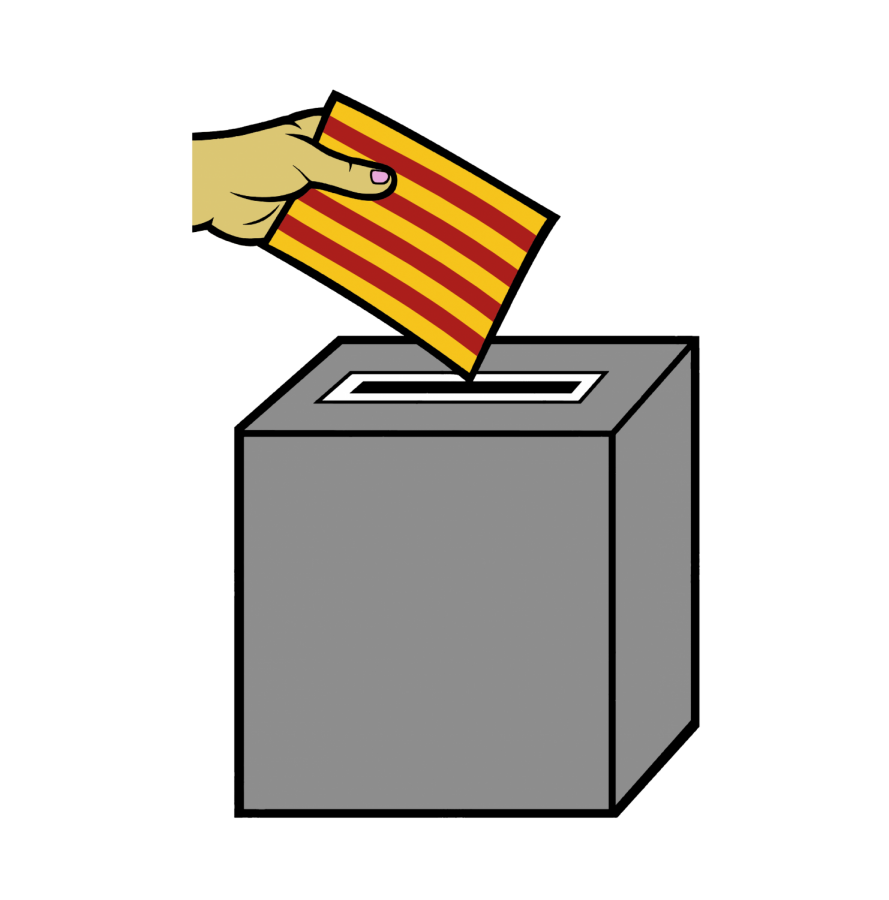Spain’s response to Catalan independence movement will determine the success of future movements
October 26, 2017
Brexit opened the floodgates. Scotland followed, but failed. Now Catalonia has joined the ranks of European nations seeking independence from a larger governing body.
Catalonia, an autonomous region in northeastern Spain that includes Barcelona and has a population of over 7 million, held an independence referendum on Oct. 1, which the Spanish government declared “illegal.” In the referendum, roughly 90 percent of voters approved independence. However, Spanish police forces prevented thousands of citizens from voting and injured approximately 900 of them in the process.
Spanish Prime Minister Mariano Rajoy defended the police actions and emphasized that Catalonia was still under Spanish law. Protests have continued throughout the month following the referendum.
Independence is not a newfound desire in Catalonia. The nation held a referendum for self-determination in 2014, a ballot that asked voters whether Catalonia should be a state and if it should be an independent state. Over 80 percent of voters answered yes to both questions in that poll.
Geographically, Catalonia has been tied to Spain for centuries, but Catalonia has always had its own identity, culture, and language — though natives also speak Spanish. Tensions between Catalans and the Spanish government have existed for years.
As the turmoil in Catalonia continues, Rajoy has invoked article 155 of the Spanish constitution, which allows Spain to essentially shut down Catalonia’s government until they comply with the country’s demands.
The situation is still developing; Catalonia may formally declare independence in the coming days, but the conflict is unlikely to be fully resolved anytime soon.
Given the regional trends of such independence movements, is Catalonia justified in seeking its full autonomy? In short, yes. While Spain technically had the authority to interfere with the Catalonian independence referendum, it sends a disturbing message to any group seeking autonomy. In contrast, the rest of the United Kingdom certainly did not want Scotland to approve its independence, but they at least respected their right to hold an election on the issue. Using violence to prevent voting is simply unacceptable.
On the other hand, the 90 percent in favor from the independence referendum comes with a caveat: only 42 percent of voters turned out for the vote. The Spanish police did stifle some of the turnout, but over half of the country did not participate in the vote anyway. Granted, even the United States only saw 60.2 percent turnout for the 2016 presidential election, but a decision as monumental as independence ought to require well over the majority of the country to voice their opinion. As a result, this lack of participation detracts from the justified bases that Catalonia has for independence.
Spain’s reaction to Catalonia’s situation will dictate the way that the world handles modern independence movements and respect for people’s right to self-determination, especially in developed countries. Catalonia will surely inspire other groups to seek independence, as Britain’s withdrawal from the European Union and Scotland’s independence referendum likely influenced Catalonia’s desire to act now. If Catalonia gains independence, they will likely spark a large wave of nations seeking self-independence. If they fail, it could staunch future movements, as they could interpret the plight of Scotland and Catalonia as a sign that the modern world does not welcome such monumental change.





















